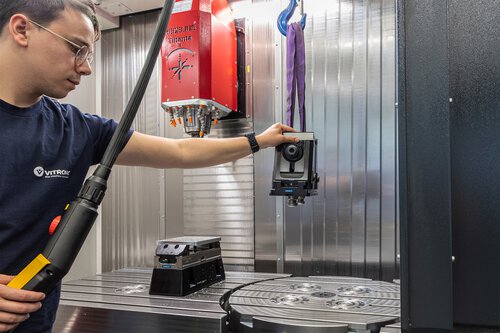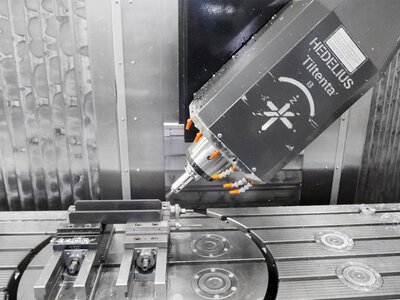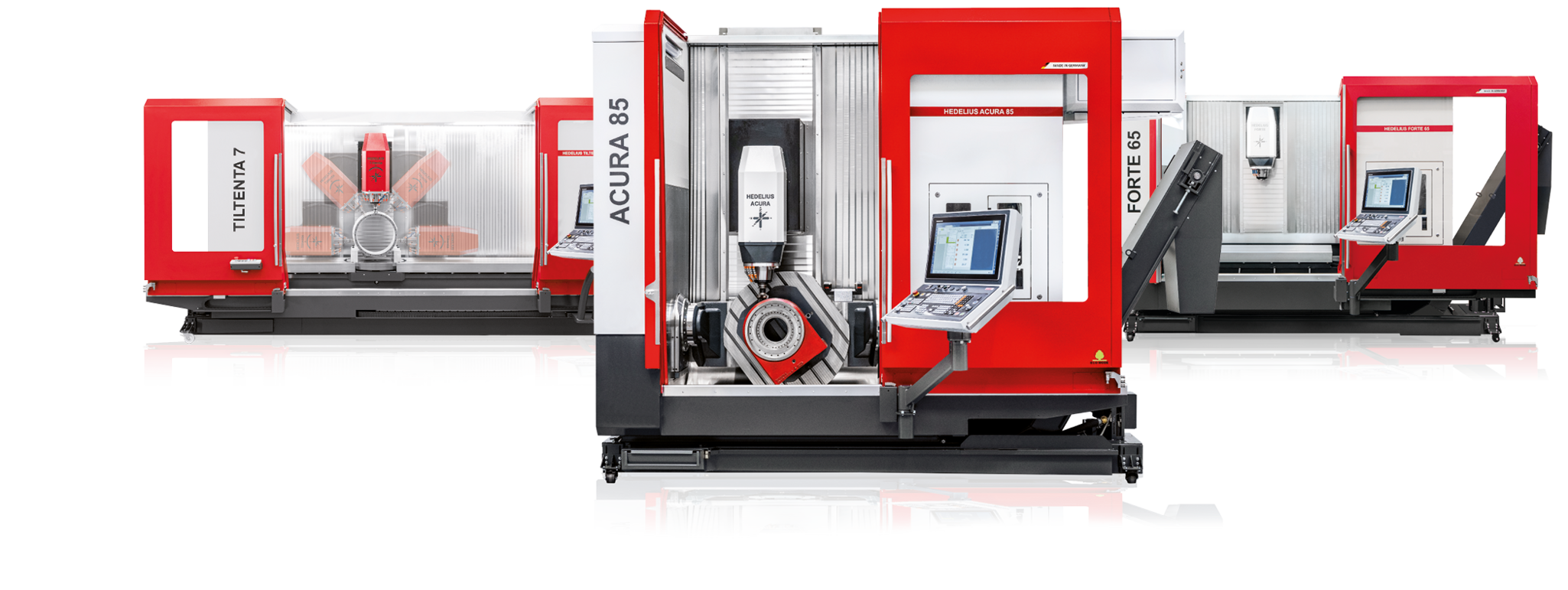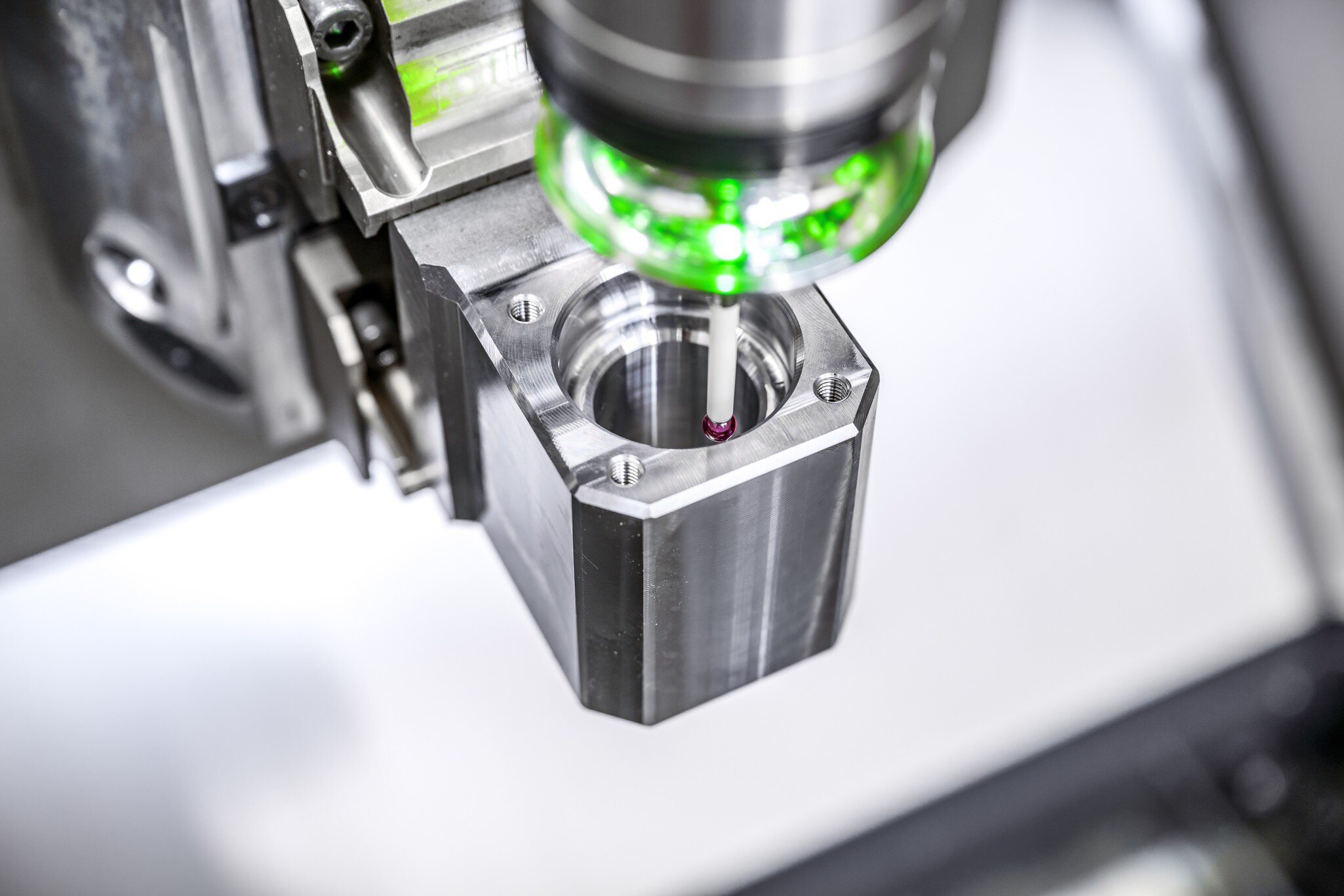Bathon GmbH | TILTENTA 7-2600
Fields of application: Machine and plant construction, contract manufacturing | Company headquarters: Alzenau, Germany | Employees: 45
The success story of Bathon GmbH began over 40 years ago with a part-time toolmaking business. Today, the family-run company has closed its doors as a versatile metalworking service provider. Flexible production is an important success factor. A HEDELIUS machining centre is also used for this purpose.
Eight years ago, Stefan Bathon became managing director of Bathon GmbH in Alzenau, Bavaria. He ran the company together with his father for two years before he retired. "Over 40 years ago, my father founded a toolmaking business as a sideline in a converted barn in Mömbris. Due to an increasingly positive order trend, the production facility had to be regularly expanded until the company finally moved to Röntgenstraße in Alzenau. There was considerably more space here. The transport links and infrastructure are also better," says Stefan Bathon, giving a brief insight into the company's history.
The family business has developed from a pure toolmaker into a versatile service provider in metal processing. This becomes immediately clear when you look into the machine halls. Laser cutting systems, press brakes, lathes and milling machines, welding robots and a few other machines stand close together, with lattice boxes and pallets of raw and finished parts in between. Bathon GmbH also has its own design, quality assurance and logistics departments.
Extreme flexibility in production.
The fact that the company now combines so many different manufacturing technologies under one roof is due to its customers. Stefan Bathon explains: "Customers want all outputs from a single source. This was reinforced during the last economic crisis. At that time, a stronger bond developed between customers and suppliers, which still exists today." In order to meet the needs of regional, national and international customers from the pharmaceutical, food, solar and construction industries, as well as vehicle construction, special machine construction and motorsport, a high degree of flexibility is required in production. Because every industry has its own requirements. Workpieces made of aluminium, steel and stainless steel as well as non-ferrous metals and plastics have to be processed in batch sizes of 1 to 500 parts. Entire assemblies, systems and customised machines are also manufactured to customer specifications. Some orders have to be processed at short notice in two to four weeks, others regularly run for six months. In order to further increase flexibility, a machining centre from HEDELIUS Maschinenfabrik GmbH was purchased in 2015.
Special table design.
In preparation for the investment, components and geometries were analysed to find exactly the right machine for the complex production situation. "We operate in the range of flexible machining and complete solutions; we rarely make simple parts," says Bathon. It was therefore clear that the new milling machine had to be able to cope with extremely diverse and demanding challenges.
However, another point was very important for the decision in favour of one manufacturer: the integrated zero-point clamping system. "We wanted a special table design with integrated Schunk clamping chucks, as we also have these in the other machines. Not everyone would have done that for us and not everyone wanted to do it for us," says Bathon. "HEDELIUS did it and integrated the clamping chucks on a TILTENTA 7-2600 swivelling spindle machining centre." All existing clamping devices can thus continue to be used equally on all machines.
Zero-point clamping system + large tool magazine.
The machine tool manufacturer from Meppen also scored points with the tool magazine. In addition to the standard magazine, Bathon ordered an additional standby magazine with 180 tools and a cone cleaning station, so that up to 213 tools are quickly and easily available. The interaction between the zero-point clamping system and the large tool magazine makes the TILTENTA 7-2600 extremely flexible and significantly reduces tooling times and therefore costs.
With travel paths of 2600 x 750 x 695 mm (x/y/z), the TILTENTA 7-2600 is the largest milling machine in Bathon GmbH's machine park and, as expected, is used very individually. "The machine is simply extremely flexible. We can machine anything on the TILTENTA 7, from small 5-axis parts to long strips or aluminium base plates. It's important to have a machine like this open to us," says Managing Director Stefan Bathon with satisfaction. High-precision components are not the rule at Bathon. However, when precision is required, as with motorsport parts, the milling machine from HEDELIUS can deliver. "The accuracy is really great, one hundredth is no problem," reports Peter Wissel, machine operator at the swivelling spindle machining centre.
The framework conditions are right.
The machine also features a HEIDENHAIN control system and a work area partition. The compact installation dimensions and access to the work area, in particular to the pneumatic system connections of the zero-point clamping system, are further plus points of the HEDELIUS machine concept. In addition to the technical requirements and advantages, the other general conditions were also right. "We preferred a smaller family business with direct contact, where we can assume that it will continue to exist for a long time," says Stefan Bathon. After a reference visit and a factory visit in Meppen, it was clear that HEDELIUS was the right partner. This has not changed even four years after the purchase.
HEDELIUS machining centres of the customer.
In accordance with market demand, HEDELIUS has made the tried-and-tested TILTENTA 7 significantly more compact with almost identical performance parameters. Discover our optimised bestseller: TILTENTA 7 NEO.
More testimonials.

In prototype construction, Vitronic relies on the modular Schunk clamping technology kit in order to work flexibly, with process reliability and optimised set-up times** in frequently changing clamping situations. Thanks to the Vero-S zero-point clamping system, various clamping devices, lathe chucks and hydraulic tool holders, clamping operations can be transferred quickly, machines utilised efficiently and high-quality machining results achieved. The unit's scalable equipment significantly increases productivity, ergonomics and reliability.

With around 60 employees at its Dillenburg site in Hesse, SIBA Metallverarbeitungs GmbH has been a reliable partner for a wide range of industries for over 60 years. A company that is so comprehensively installed must be able to act highly flexibly in production. This is why SIBA has relied on HEDELIUS machining centres for many years. The company currently relies on two automated systems that ensure maximum precision, unmanned running times and short reaction times: the ACURA 65 EL with PROMOT automation and the ACURA 65 MARATHON with MARATHON SR422 pallet magazine.

Thanks to the TILTENTA 11- 2600, S&S Schliess- und Sicherungssyteme GmbH in Mühlhausen, Thuringia can now produce even more time-efficiently. Thanks to the generous work area, the integrated swivelling spindle concept and high-performance 5-axis complete processing, one clamping is sufficient for S&S to process complex components completely with the TILTENTA 11- 2600.




















































































































































